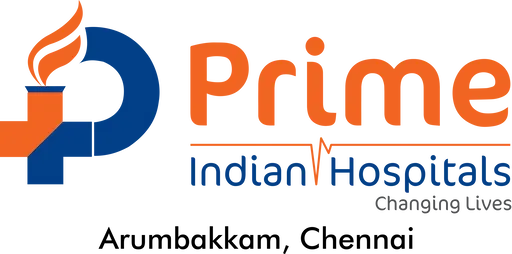IMCU / ICCU provides specialized medical care to patients facing critical health conditions. For patients with heart-related illnesses, the Intensive Cardiac Care Unit (ICCU) serves as a dedicated space for advanced cardiac care. It is equipped to manage and monitor severe cardiac conditions, offering life-saving interventions for individuals who are in a critical state. The significance of IMCU/ICCU units cannot be overstated, as they provide rapid intervention in cases of cardiac emergencies.
Hospitals like Prime Indian Hospital provide specialized care for cardiac patients, with trained professionals ensuring recovery. The canteen offers nutritious meals to support patients’ health and well-being during their stay.
INTENSIVE CARDIAC CARE UNIT (ICCU)
The ICCU is designed to manage patients with severe cardiac conditions who need constant monitoring and immediate care. Equipped with advanced heart monitors, defibrillators, and ventilators, the unit ensures that life-saving treatments are available instantly.
Patients are continuously monitored for vital signs such as heart rate, blood pressure, and oxygen levels. This monitoring is crucial in detecting issues early, especially after surgeries or during acute heart failures.
- Continuous cardiac monitoring: Ensures timely detection of sudden changes in vital signs, allowing immediate intervention.
- Advanced medical technology for intervention: Provides tools like defibrillators and pacemakers to stabilize critical patients instantly.
- Specialized care for post-operative cardiac patients: Patients recovering from surgery receive intensive monitoring to prevent complications.
- Immediate access to life-saving medications: Essential drugs are administered rapidly for conditions like heart attacks or arrhythmias.
Cardiac Emergency
A cardiac emergency, such as a heart attack or arrhythmia, requires quick action. The ICCU is equipped for such crises, ensuring rapid intervention to stabilize the patient’s condition. Immediate treatments like thrombolytics or angioplasty can significantly improve recovery chances.
The medical team assesses the situation quickly and initiates treatment, ensuring that complications are minimized. Early intervention reduces the long-term impact of these conditions.
- Immediate cardiac monitoring and treatment: Monitoring begins immediately to guide fast and accurate interventions.
- Administration of thrombolytic therapy or angioplasty: Quick administration of clot-busting drugs or angioplasty opens blocked arteries.
- High-stakes intervention for acute cardiac failure: Life-saving measures such as mechanical support or vasopressors are used for heart failure.
- Close monitoring of critical cardiac parameters: Continuous monitoring helps in adjusting treatment based on real-time data.
Heart Monitoring
Heart monitoring is essential in the ICCU, providing real-time data about the patient’s heart function. This constant tracking helps detect issues like arrhythmias and guides treatment decisions, including medication and surgeries.
By using systems like ECGs and telemetry, healthcare providers can quickly identify irregularities in heart rhythm and intervene immediately.
- Continuous ECG and telemetry monitoring: Provides uninterrupted data, crucial for detecting heart issues early.
- Early detection of heart arrhythmias: Identifying irregular heart rhythms allows for swift corrective actions, including defibrillation.
- Adjusting treatment based on real-time data: Real-time monitoring allows for dynamic adjustments in treatment plans.
- Informing decisions for advanced cardiac interventions: Continuous monitoring helps doctors decide whether more advanced interventions like surgery are required.
Critical Cardiology
Critical cardiology deals with managing high-risk cardiac conditions, particularly those that require immediate attention. The ICCU’s team handles conditions like heart failure, acute coronary syndromes, and post-operative recovery.
This specialized care requires constant adjustments in medication, device settings, and treatment plans to stabilize the patient and improve outcomes.
- Specialized treatment for heart failure and coronary syndromes: Immediate interventions for life-threatening heart conditions like heart failure and heart attacks.
- Management of high-risk cardiac patients: Patients are carefully monitored and treated with personalized care.
- Invasive procedures and medication interventions: Procedures like angioplasty and the use of drugs are employed to treat severe cardiac conditions.
- Continuous collaboration with cardiologists and critical care teams: The ICCU team works together to provide integrated care.
Cardiac Ventilation
Cardiac ventilation helps patients who are struggling to breathe due to heart-related conditions. The ICCU uses ventilators to provide controlled oxygen, stabilizing heart and lung functions.
Ventilation is adjusted as needed based on the patient’s condition, offering essential support for those unable to breathe effectively.
- Mechanical ventilation for patients with heart failure: Ventilators assist in maintaining oxygen levels for patients with respiratory failure or heart failure.
- Adjustments to ventilator settings based on patient needs: Settings are tailored to each patient’s condition to optimize oxygen delivery.
- Optimizing oxygenation to support heart function: Proper oxygenation helps stabilize both heart and lung functions.
- Continuous monitoring of patient response to ventilation: Patient response to ventilation is monitored, allowing for adjustments as needed.
Stroke Management
In cases of stroke, quick diagnosis and treatment are vital. The ICCU provides immediate care for both ischemic and hemorrhagic strokes, using clot-dissolving drugs or procedures like thrombectomy to restore blood flow to the brain.
Stroke patients are closely monitored for both neurological and cardiac functions, ensuring that both systems are stable.
- Immediate administration of clot-dissolving drugs or thrombectomy: Quick action, like administering thrombolytics or performing thrombectomy, restores blood flow to the brain.
- Monitoring of neurological and heart functions: Both heart and brain activity are monitored to prevent complications and ensure proper recovery.
- Multidisciplinary approach to stroke treatment: Experts in cardiology and neurology work together to optimize patient care.
- Rapid intervention to minimize brain damage: Quick treatment minimizes brain damage and enhances recovery chances.
Conclusion
The Intensive Cardiac Care Unit (ICCU) plays a crucial role in providing critical care for patients with severe cardiac conditions. Through continuous monitoring, advanced interventions, and expert care, it offers life-saving treatments that improve patient outcomes. Prime Indian Hospital is dedicated to providing world-class cardiac care in our advanced ICCU, ensuring that patients receive the highest standard of medical attention during critical times. The ICCU’s goal is to stabilize patients, minimize complications, and facilitate recovery, providing the best chance for a positive outcome.














